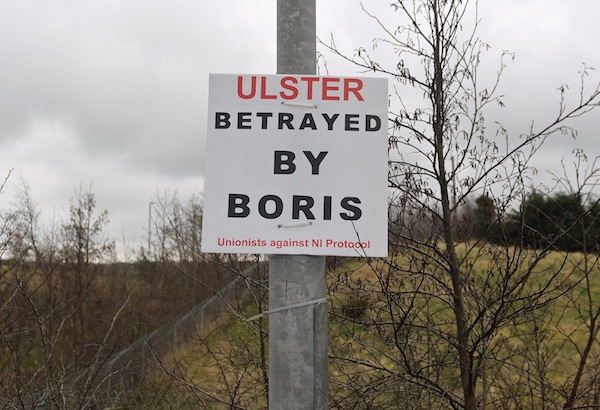
Voters in Britain who support the reunification of Ireland outnumber those who support the union by three to one, according to a new poll. Barely one in ten oppose Irish unity, while more than half failed to express an opinion.
The poll for the New Statesman magazine shows a majority of British voters simply feel no connection to Ireland or the Irish people either way, with 38 per cent saying they neither support nor oppose Irish unification, and 21 per cent were ‘don’t know’.
Only 11 per cent opposed it, while 30 per cent expressed their support.
A small minority of British voters say they follow events in the north of Ireland a great deal or quite a lot, with only 8 per cent saying they follow them a great deal, 19 per cent quite a lot, 42 per cent to some extent, and 30 per cent do not follow events in the North of Ireland at all.
These results will increase pressure on British politicians to create a pathway for Irish unification.
It follows a report last week which revealed that, as a result of demographic changes and a rise in support for ‘cross-community’ parties, a pro-union majority has ceased to exist in any of the six northeastern counties still under British rule.
It also echoes a poll published in 2019 which found that Conservative Party members are willing to allow Irish unity in order to achieve Brexit, reflecting how far the Tory leadership is at odds with its own membership.
Ignorance on Irish issues has been a hallmark of Tory leaders throughout the conflict, and was confirmed last week by a new book by a former British Ambassador to Ireland.
In his posthumously published memoir ‘The Making of the Anglo-Irish Agreement of 1985 – A Memoir’, the late British Ambassador to Ireland, David Goodall, revealed that former British Prime Minister Margaret Thatcher considered a Cromwellian solution to force Irish Catholics out of the Britsh-ruled North.
Thatcher “asked why arrangements could not be made to transfer those members of the minority community who did not wish to remain under British rule” to the 26 Counties.
“After all,” she said, “the Irish were used to large-scale movements of population. Only recently there had been a population transfer of some kind, she said.
Goodall reports in his book that there was a stunned silence among the Irish and British diplomats and politicians when she said that. After a pause, he asked if she could possibly be thinking of Cromwell.
“Cromwell, of course,” she said. He responded: “Well, prime minister, Cromwell’s policy was known as ‘To Hell or Connaught’ and it left a scar on Anglo-Irish relations which still hasn’t healed”.
![[Irish Republican News]](https://republican-news.org/graphics/title_gifs/rn.gif)
![[Irish Republican News]](https://republican-news.org/graphics/title_gifs/harp.gif)

